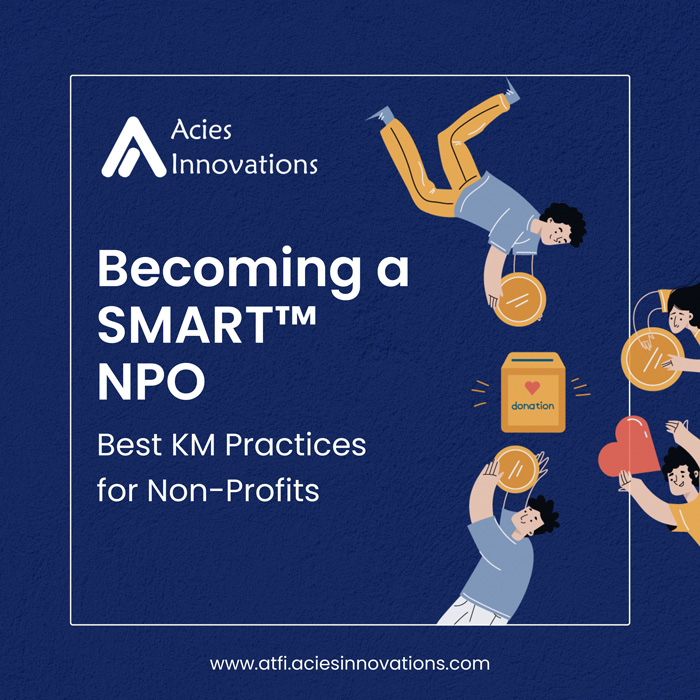
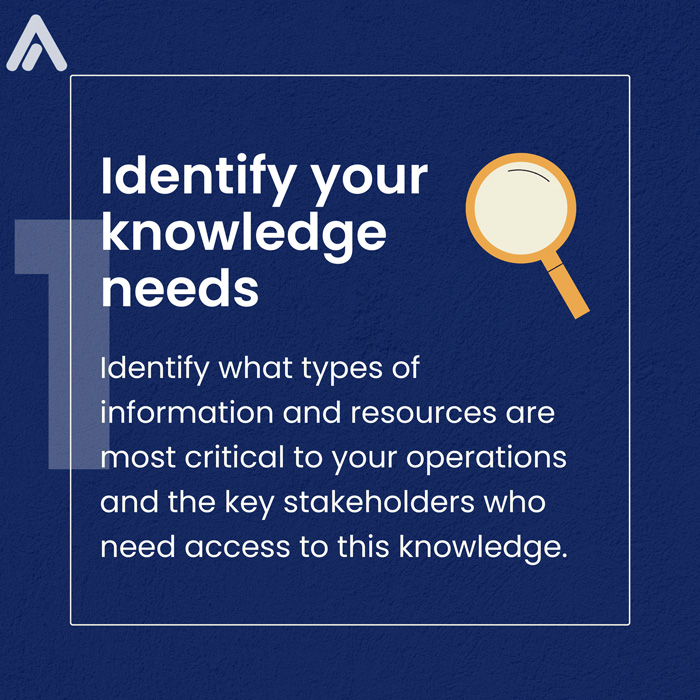
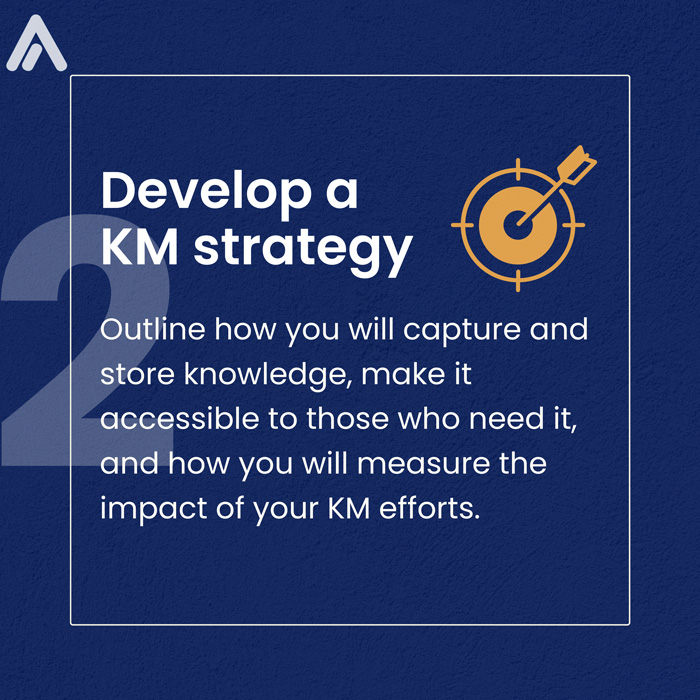
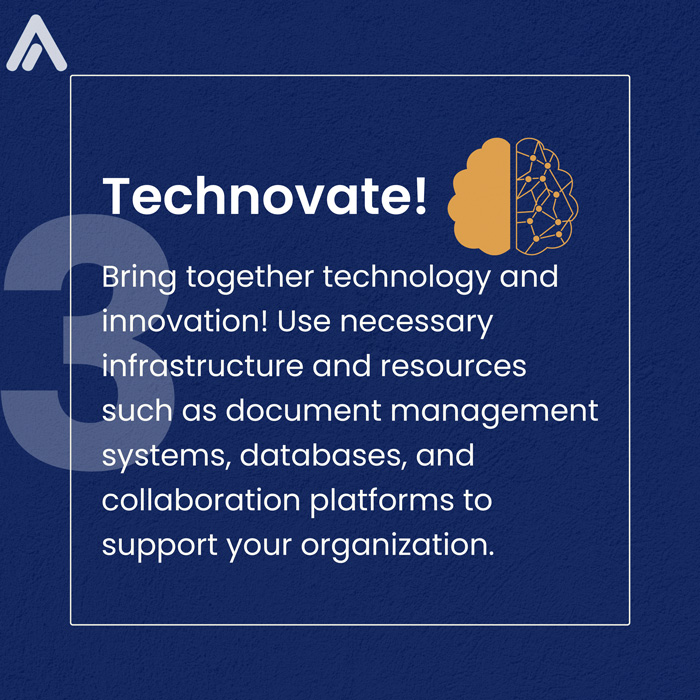
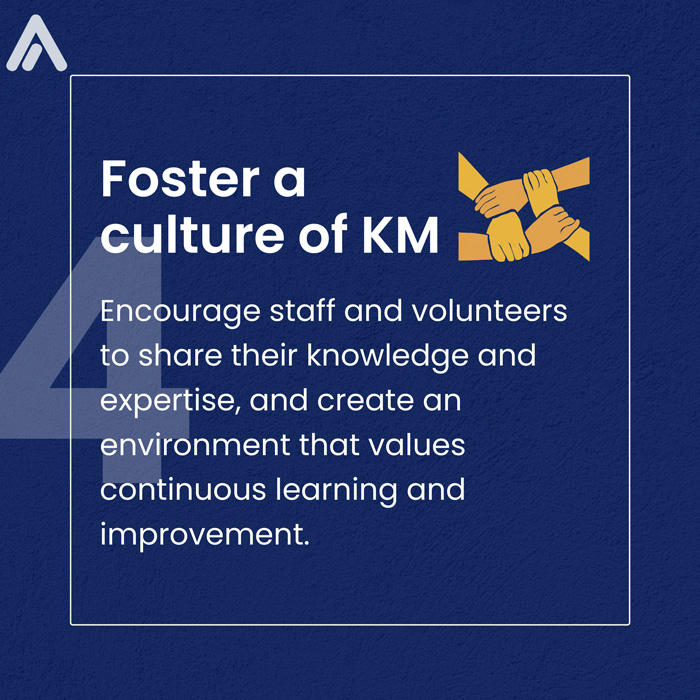
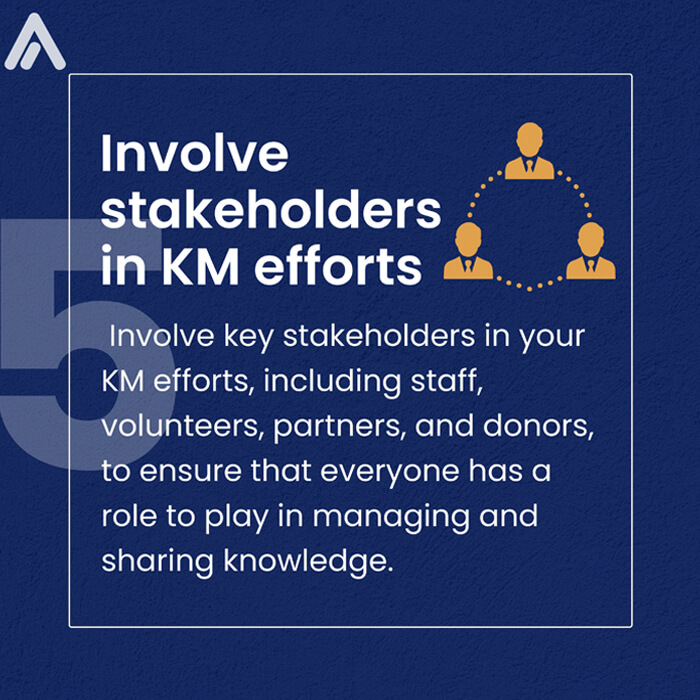
Becoming SMART™: Best KM Practices for Non-Profits
By Admin Febraury 1, 2023Effective knowledge management (KM) is crucial to becoming a SMART™ organization: it ensures that you have the right information and resources at hand to inform your decisions and drive better outcomes. But how can you ensure effective KM? Here are a few tips and strategies:
1. Identify your knowledge needs
Before you can effectively manage and share knowledge, it's important to understand what knowledge is valuable to your organization. Consider what types of information and resources are most critical to your operations, and identify the key stakeholders who need access to this knowledge.2. Develop a KM strategy
Once you have identified your knowledge needs, it's important to develop a KM strategy that outlines how you will create, share, use, and manage knowledge within your organization. This should include things like how you will capture and store knowledge, how you will make it accessible to those who need it, and how you will measure the impact of your KM efforts. Developing a KM strategy is an important step in creating sustainable and scalable proccesses and programs.3. Technovate!
There are many tools and resources available to support KM in non-profits, including document management systems, databases, collaboration platforms, and more. Consider what technologies will be most effective for your organization, and make sure you have the necessary infrastructure and resources in place to support them. With the right kind of technology to support your personnel, your processes can be streamlined.4. Foster a culture of KM
KM is not just about the tools and technologies you use, but also about the culture of your organization. Encourage staff and volunteers to share their knowledge and expertise, and create an environment that values continuous learning and improvement. Creating a nurturing environment for your personnel will help in creating mission-driven employees and result in better employee retention.5. Involve stakeholders in KM efforts
KM is not just the responsibility of a single department or team, but should be integrated into the operations of the entire organization. Involve key stakeholders in your KM efforts, including staff, volunteers, partners, and donors, to ensure that everyone has a role to play in managing and sharing knowledge. This will remove knowledge silos and ensure that the organization can scale using the knowledge systems in place.
By following these best practices, it is rest assured that the organization has the knowledge and resources it needs to become a SMART™ organization, and to achieve its goals and make a positive impact in the community.